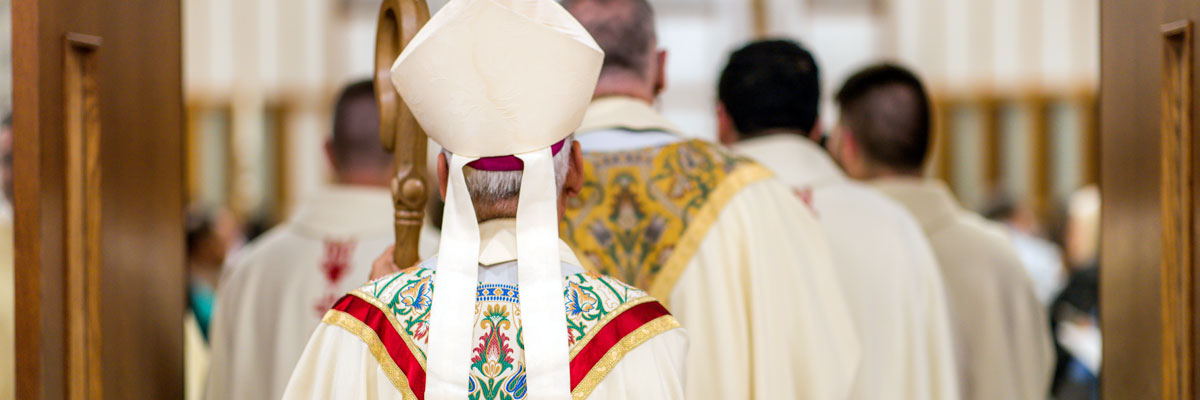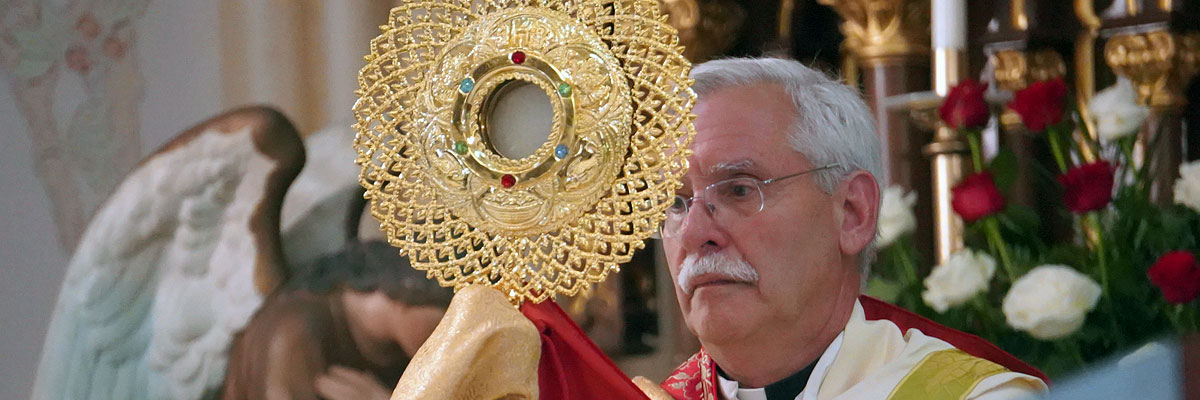Official Website of the
Catholic Diocese of Little Rock
19th Sunday in Ordinary Time, Year C
Published: August 7, 2016
Bishop Anthony B. Taylor preached the following homily during the Catholic Biblical Association meeting at Santa Clara University in Santa Clara, Calif. on Sunday, Aug. 7, 2016.

Bishop Taylor
First of all, I want to take a moment to thank you who have dedicated your life to the study of the Scripture for the valuable service you provide to all of us.
Your efforts strengthen the faith and enrich the Church. I want you to know of the appreciation I feel personally as well as in my role as chair of the USCCB (U.S. Conference of Catholic Bishops) Subcommittee on the Translation of Scripture Text and member of the Committee on Doctrine.
And, of course, I also value the ecumenical nature of biblical scholarship fostered by the Catholic Biblical Association. So, thank you.
And what is true for me and my fellow bishops is true for every one of you as well. You have been given responsibility for a portion of the master’s household, be it in academia or in pastoral work or wherever. Be vigilant, you too will be called to account, for the master may come when you least expect.
They say you write your dissertation once and then spend the rest of your life defending it. Well, wouldn’t you know, I did my dissertation on the master-servant type scene in the parables of Jesus and out of the entire three-year liturgical cycle, this is the only Sunday in which the Gospel reading contains two of Jesus’ nine servant parables: the Waiting Servants and the Faithful or Unfaithful Servant.
As you perhaps know, some of the servant parables confound audience expectations and Jesus uses these to unpack for his hearers the implications of the new covenant of grace — for instance, the vineyard workers.
Other servant parables conform with the narrative expectations of the audience, even if their implications for discipleship can be quite demanding, and the parables we have today fall into this latter category. The waiting servants is about vigilance and the faithful or unfaithful servant is about integrity, both of which are essential for faithful discipleship.
What’s going on in these parables? Like in all the servant parables, the audience expects a story in which servants are given a task, then separated from their master and tested in some way regarding that task.
They decide what they will do, the master and his servants are reunited, he evaluates what they have done and rewards and punishes them accordingly. Task, separation, trial, decision, reunion, evaluation and retribution. Each individual servant parable operates against this background.
The waiting servants in today’s Gospel have the task of being vigilant and opening for their master when he returns. The faithful or unfaithful servant has the task of administering his master’s household. In both parables the servants are tested by the delay of their master, and the faithful or unfaithful servant by the unexpectedness of that delayed return.
Of course, these parables took on added significance in the life of the Church as believers began to face the fact that Jesus was not returning as soon as they had expected.
By then, the Church had been around long enough to have had the sad experience of seeing the damage caused by unfaithful servants for whom their master’s delay has become a temptation to vice: abusive power plays and indulgent living. The master will return unexpectedly and punish those unfaithful servants accordingly.
As a bishop in the Church, I have to take these parables quite seriously, especially the second one which Luke specifically applies redactionally to the apostles themselves — and by extension, their successors. I think this is why Pope Francis seems to challenge bishops to greater faithfulness every chance he gets.
That we should lead without abusing our fellow servants. That we should not act like we belong to the leisure class. That we should be merciful in the face of human weakness even when we must proclaim uncomfortable truths.
That we should be courageous in the struggle against all that does harm to the human spirit. Vigilant like the waiting servants, ready to open when the Lord comes to us disguised and broken. Persons of integrity worthy of our master’s trust and confidence.
And what is true for me and my fellow bishops is true for every one of you as well. You have been given responsibility for a portion of the master’s household, be it in academia or in pastoral work or wherever. Be vigilant, you too will be called to account, for the master may come when you least expect.









